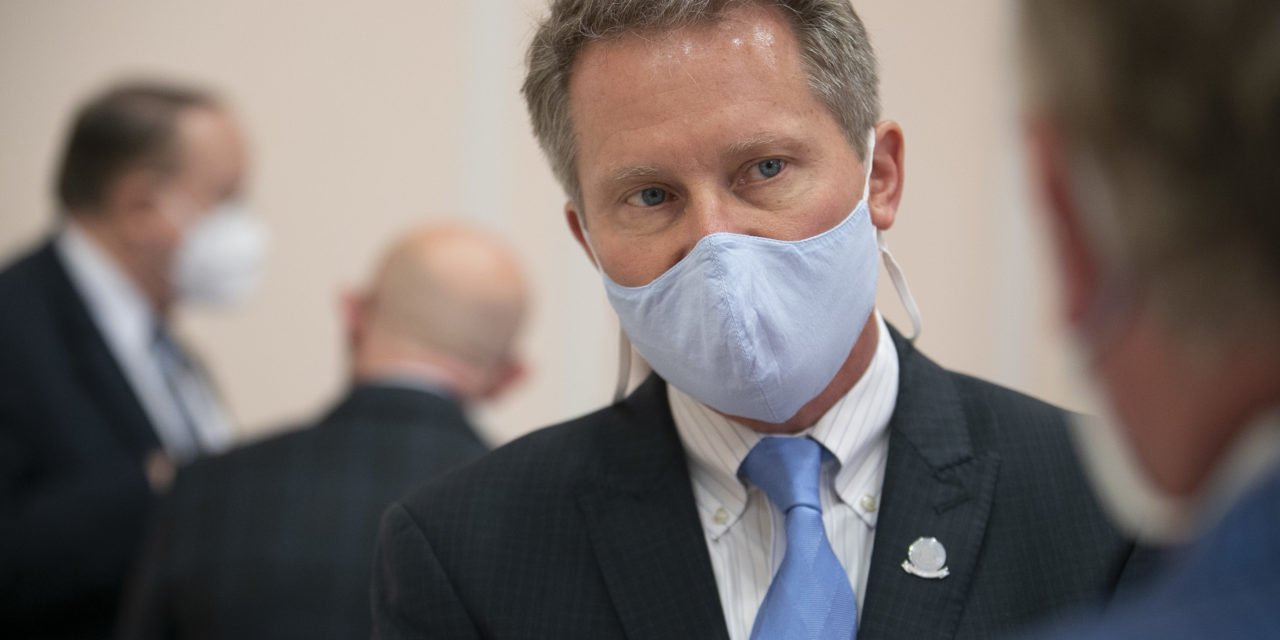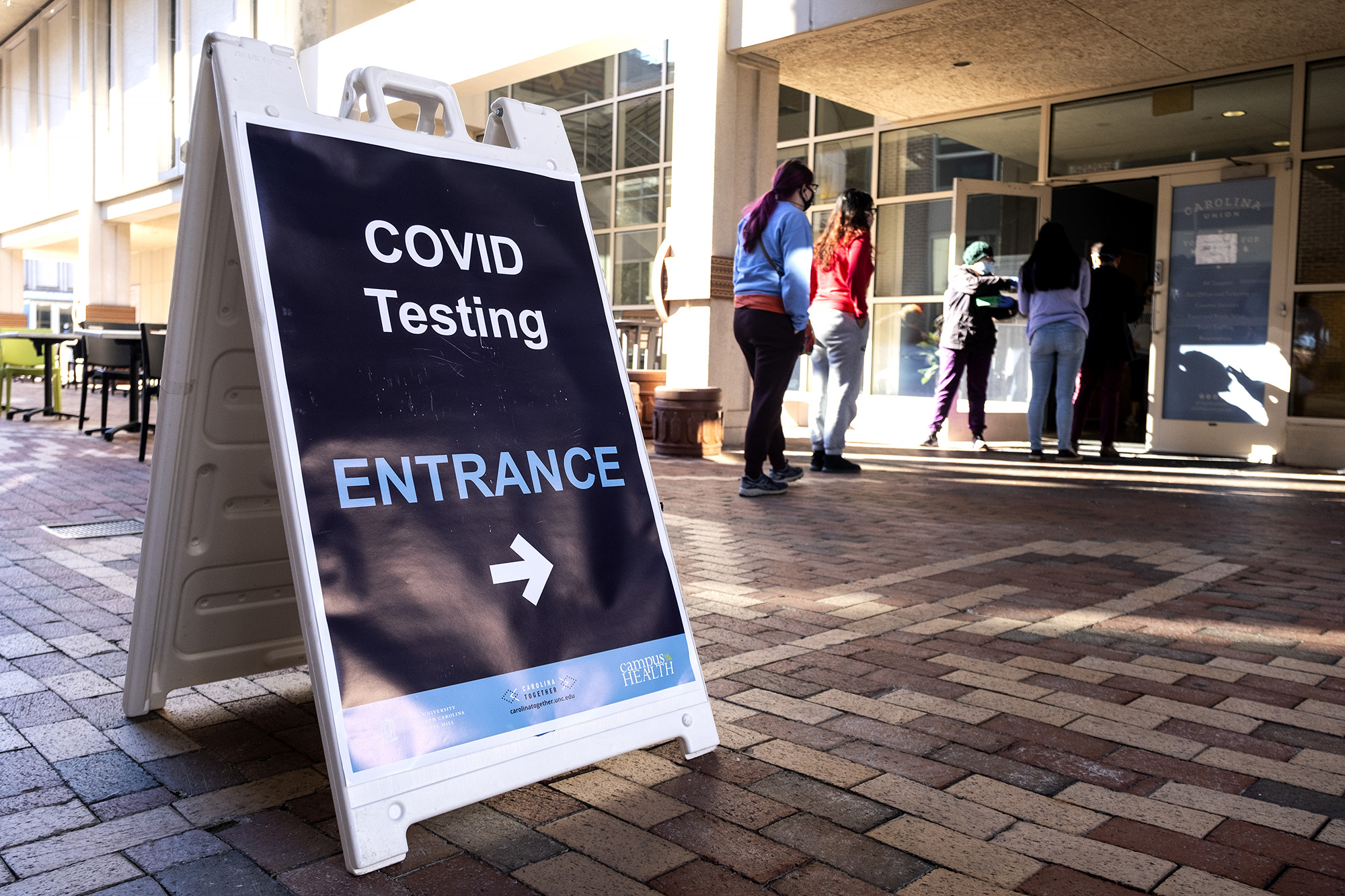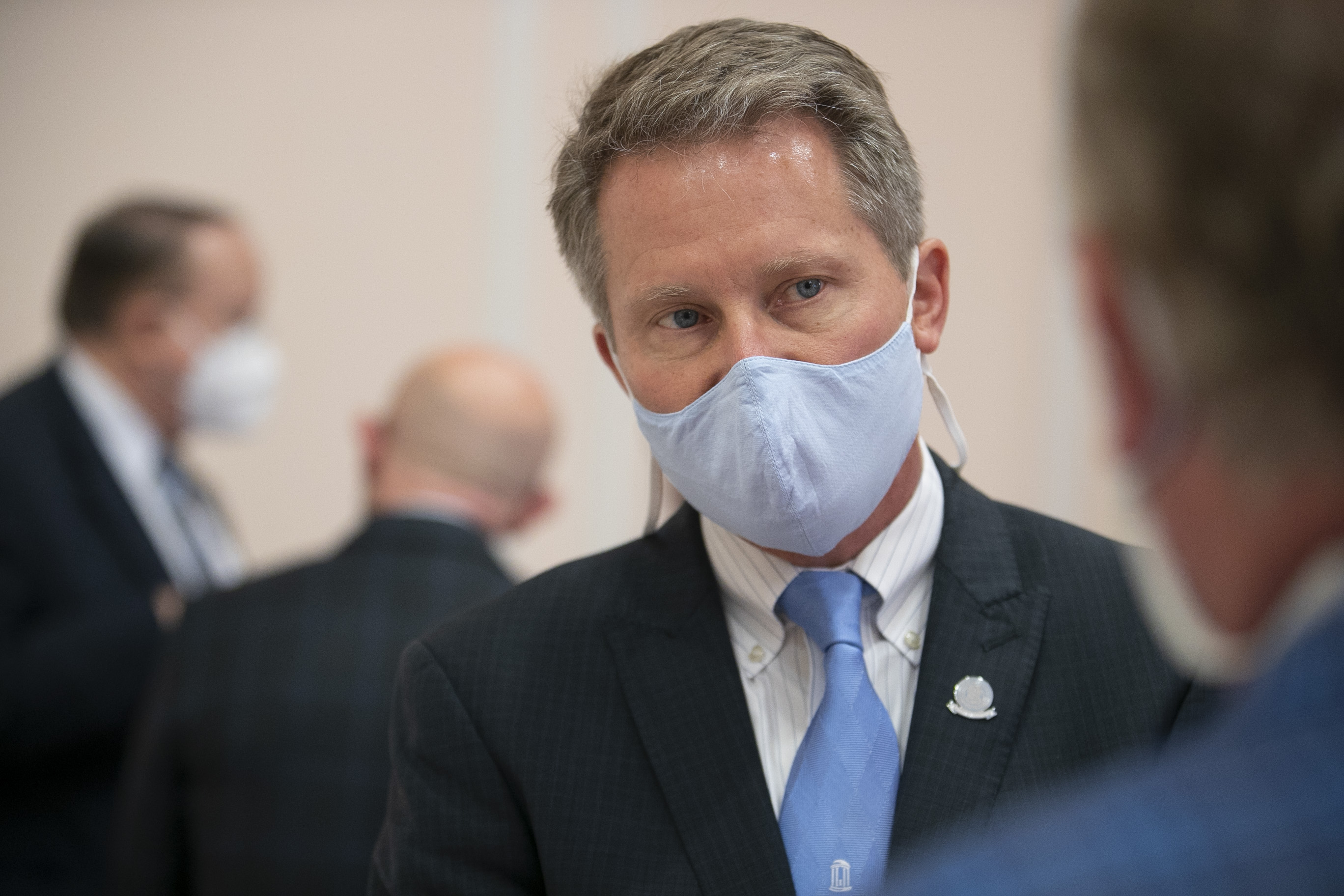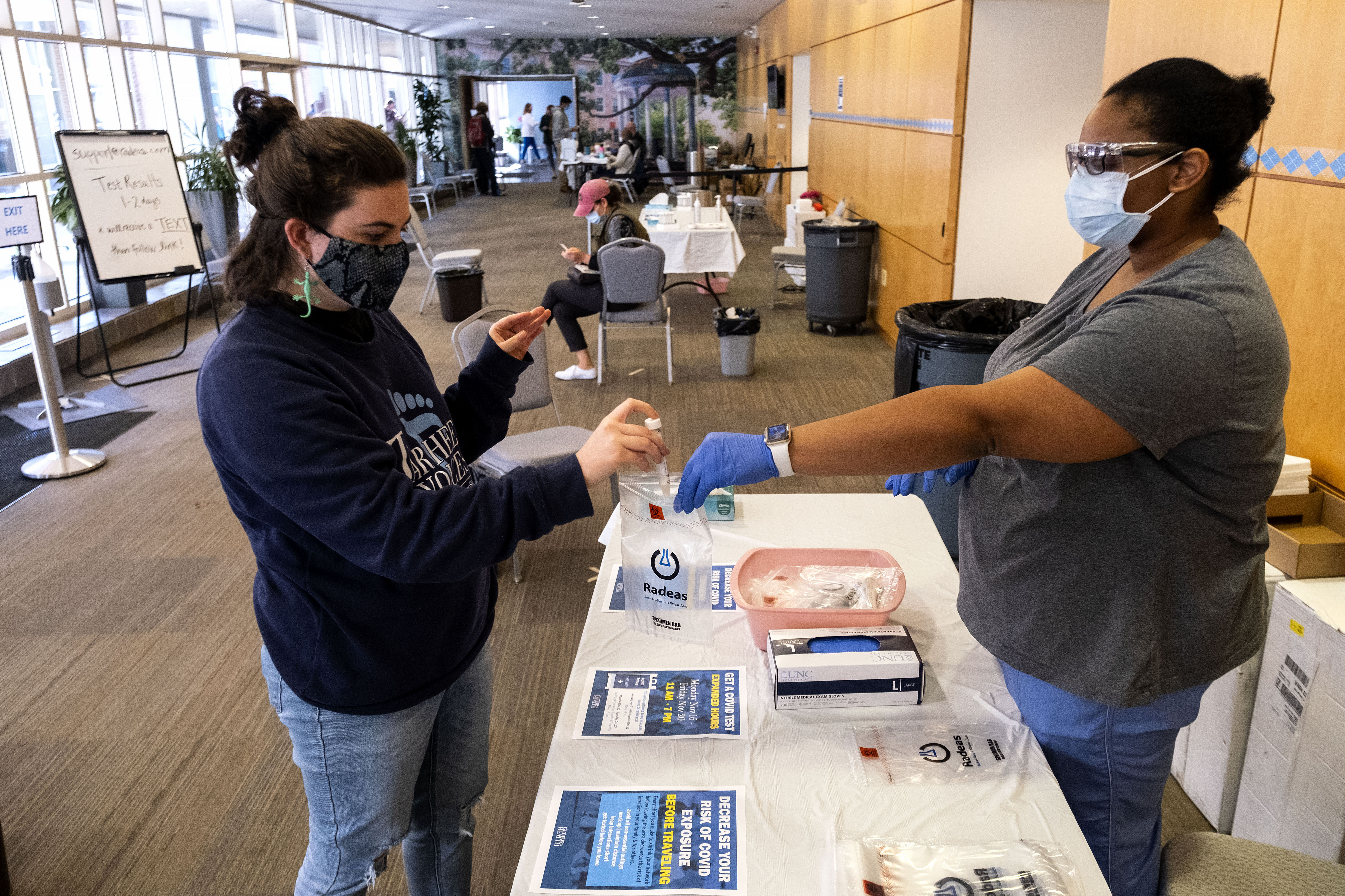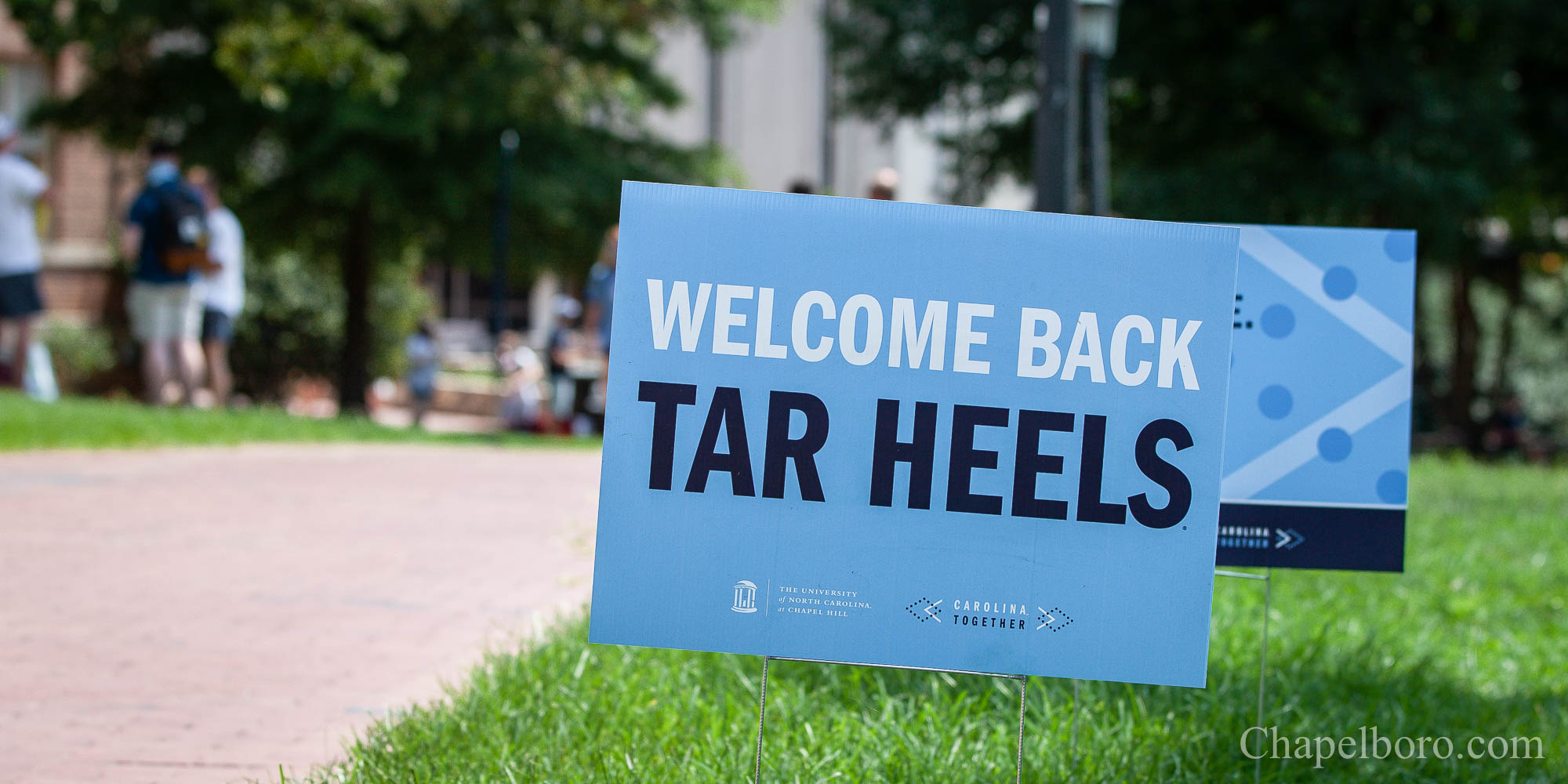When UNC students return for in-person instruction in January, several aspects of the on-campus experience will be different from the fall semester. A limited student population, single-occupancy dorm rooms and more quarantine residence halls are all elements the university will implement to mitigate any spread of COVID-19.
An increased amount of testing for the coronavirus, though, is also part of UNC’s plans.
At the Board of Trustees meeting on Thursday, Chancellor Kevin Guskiewicz shared updates on the university’s spring goals to safely welcome back about 3,500 students to live on the Chapel Hill campus. Regular required screenings for the coronavirus, including testing upon return to UNC, are an integral part of the new system aimed at preventing the same positive clusters experienced during the first week of schooling this fall.
Guskiewicz said university officials know much more about testing now than they did in August and the restart of in-person instruction will be largely informed by what was learned. He said he believes these changes in place will help UNC have a “successful start and end” to the spring 2021 semester.
“We’ve looked at what has worked well and what has not worked well for other institutions around the country,” said the chancellor. “We do believe the regular testing for students living in those residence halls will be really important. That’s where we saw the velocity and magnitude of spread of the virus was greatest.”
While presenting the testing strategy to the Board of Trustees, Dr. Amir Barzin agreed with this importance. The medical director for the Family Medicine Center at Chapel Hill and assistant professor in the UNC School of Medicine said routine testing of the students living in dorms will be key to both tracking and preventing the virus’ spread. Barzin said implementation of the testing system will be based on sharing very accurate results with students quickly.
“Our goals when we were thinking about starting our testing,” he described, “were we had not only the ability to test, but also the capacity to return results in a timely fashion, [usually] in less than 24 hours, as well.”
To do that, the university will have students take PCR tests that detect COVID-19’s genetic material and show whether someone actively has the coronavirus.
“When we’re doing our surveillance testing,” Barzin said, “it’s an anterior [nasal] swab, basically a short stick that goes to the side of your nose. It’s a very fast swab, it’s non-invasive.”
Barzin described the process students will have for this regular testing. Three locations will be set up at various spots on UNC campus, each big enough for up to 18 people to safely test at once. Students will walk in, follow instructions from a web-based app, self-administer the test and leave the testing center. Barzin said the entire procedure may take about two minutes, with the test being sent to a lab on campus for processing and students receiving their results hours later.
Barzin told trustees on Thursday the lab for COVID-19 tests recently became certified to handle such samples and should be fully functional by early December. According to him, medical experts are also working on different models and projections to prepare for various scenarios of positive test results among the campus community, with preparation in place to respond to many of them.
Guskiewicz said ultimately, the decision for students to return will depend on whether their health and safety can be protected. He said many of those he’s spoken with, whether those on his Campus and Community Advisory Committee or elsewhere, say they look forward to in-person instruction again.
“That’s what we’re trying to do: provide that [face-to-face] opportunity while still providing flexibility for those who aren’t ready to come back,” said Guskiewicz. “I do believe the vast majority of students were adhering those community standards. But those who weren’t, we hope that they too have learned some lessons, because we’re going to have some measures in place to be sure we can enforce those [health protocols.]”
The last day of fall exams at UNC is November 24, with the spring semester slated to begin on January 19.
Photo via Robert Willett.
Chapelboro.com does not charge subscription fees. You can support local journalism and our mission to serve the community. Contribute today – every single dollar matters.

